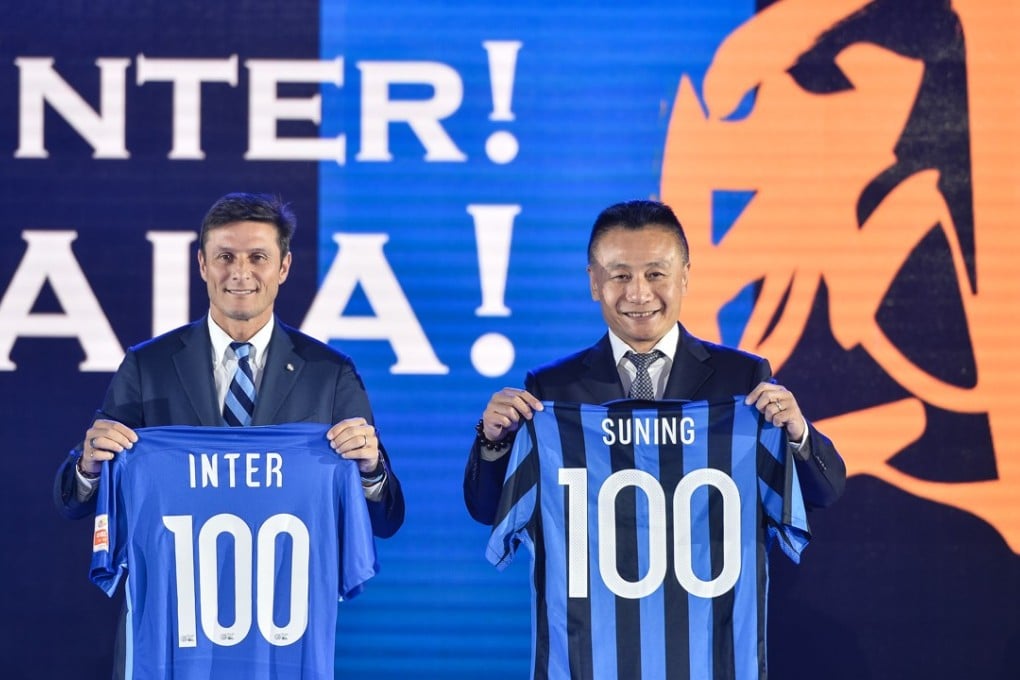Chinese state TV asks: did Suning buy Inter Milan to launder money?
Suning’s stocks and bonds fall as state-owned CCTV programme questioned if Chinese tycoons are taking over loss-making soccer clubs to launder money

Suning Holding Group, one of the China’s top home appliance retailers, which made its name worldwide last year by buying Italian soccer club Inter Milan, saw its shares and bonds plummet on Wednesday after the state mouthpiece questioned the rationale of the deal.
“This famous club (Inter Milan) has been making a loss for five years, with total losses amounting to 275.9 million euros. For what purpose would a Chinese company take over it?” asked the host of a TV show on state-owned China Central Television on Tuesday morning.
“Some companies are already highly indebted at home, yet they spend lavishly with bank loans abroad ... I think many overseas acquisition deals have a low chance of generating cash flow, and I cannot exclude the possibility of money laundering,” said Yin Zhongli, a researcher with the Chinese Academy of Social Sciences, during the show.
I think many overseas acquisition deals have a low chance generating cash flow, and I cannot exclude the possibility of money laundering
Suning Commerce Group, the group’s Shenzhen-listed arm fell 6.5 per cent to a near 7-week low of 10.22 yuan in the morning, before recovering slightly to close at 10.63 yuan at the end of the trading day. The company’s bonds also fell slightly, as “12 Suning 01” traded in Shenzhen fell 0.42 per cent to 99.87 yuan.
Suning purchased a 70 per cent stake in Italian soccer club Inter Milan for 270 million euros (US$311.61 million) in 2016.
In the past three years, Chinese companies have spent tens of billions of euros to buy into more than a dozen of the world’s top soccer clubs in the UK, Spain, France, Italy and Germany.

While the investments into some soccer clubs came across as unreasonable, like the two Milan deals, their valuations don’t seemed to be inflated based on a market fair value, said a banker who had been involved in a cross-border soccer club deal.